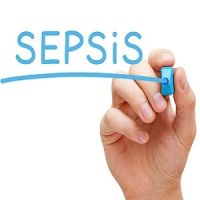Using biomarkers as a guide to tailor the duration of antibiotic treatment in respiratory infections is an attractive hypothesis assessed in several studies. However, after more than a decade of randomised controlled trials on procalcitonin (PCT)-guided antibiotic treatment, the evidence favouring PCT use is still less than compelling due to limitations in trial design, according to a commentary in the journal Critical Care.
"These limitations include not taking into consideration fundamental aspects of PCT biology and the absence of evidence-based antimicrobial duration in intervention and control groups, namely in VAP [ventilator-associated pneumonia]," write article authors Thiago Lisboa, MD, Critical Care Department and Infection Control Committee, Hospital de Clinicas de Porto Alegre, Porto Alegre, Brazil; Jorge Salluh, MD, PhD, Instituto D’OR de pesquisa e ensino, Rio de Janeiro, Brazil; and Pedro Póvoa, MD, PhD, Nova Medical School, CEDOC, New University of Lisbon in Portugal.
A major concern in PCT-guided trials is antibiotic use in the control group. The authors point out that "the duration of therapy in control groups is systematically above those recommended by guidelines and the best available evidence base (e.g., standard of care for ventilator-associated pneumonia (VAP) patients in the control group should be 6–8 days, not 13 days)."
Noting that usual care is sometimes far from the best available care or what should be standard of care, the authors say trials using a protocolised rather than an unrestricted standard care control group could have enhanced validity as long as the protocolised care control group is representative of standard care practices.
"In PCT studies, a protocolised group with clear stop rules for antibiotic duration, making it more compatible with best available evidence and recommendations, would be important and could lead to better evaluation of biomarker-based antimicrobial treatment," the authors explain.
The commentary highlights another important limitation of PCT use: the lack of information on specific conditions and populations where its value is inadequate because of intrinsic constraints. In critically ill patients the presence of acute kidney injury or the use of renal replacement therapies has a profound effect on PCT concentrations. Additionally, PCT tends to be less responsive to repeated inflammatory insults (such as VAP or nosocomial bloodstream infections), resulting in lower than expected peak concentrations.
The authors cite a recent meta-analysis that aimed to summarise the evidence by assessing the effect of a PCT-guided antibiotic treatment on outcomes in acute lower respiratory tract infections (LRTI), suggested that significant reductions in antibiotic duration occur when using a PCT-guided algorithm. However, controversial evidence also suggested PCT-guided algorithms were associated with increased antibiotic duration and increased incidence of Clostridium difficile, without any impact on mortality, in real-world settings.
The authors conclude: "A double-trigger criteria, in which antibiotics are stopped according to the clinical course and either decreases in biomarker levels, according to an algorithm, or the completion of 5–7 days of treatment, whichever comes first, might be a safe and efficient strategy to decrease antimicrobial therapy duration in critically ill patients."
Source: Critical Care
Image Credit: Pixabay
References:
Lisboa T, Salluh J and Povoa P (2018) Do we need new trials of procalcitonin-guided antibiotic therapy? Critical Care 22:17 https://doi.org/10.1186/s13054-018-1948-6
Latest Articles
antibiotic treatment, Respiratory Infections, procalcitonin-guided antibiotic therapy, PCT
Using biomarkers as a guide to tailor the duration of antibiotic treatment in respiratory infections is an attractive hypothesis assessed in several studies. However, after more than a decade of randomised controlled trials on procalcitonin (PCT)-guided a


























